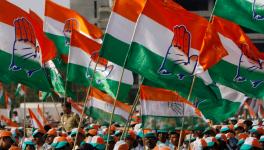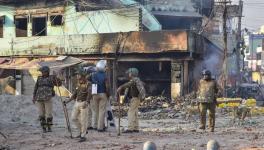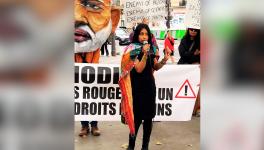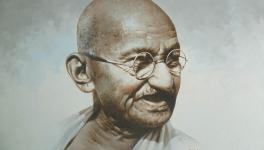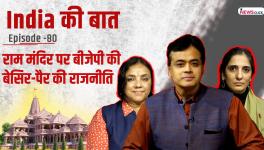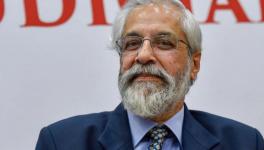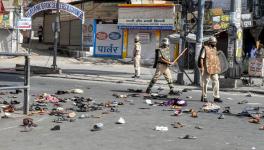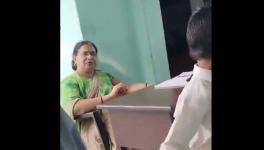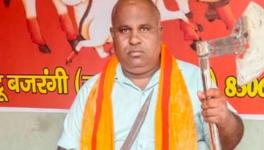Ayodhya Ruling: Why Muslim Parties Should Not Seek Review
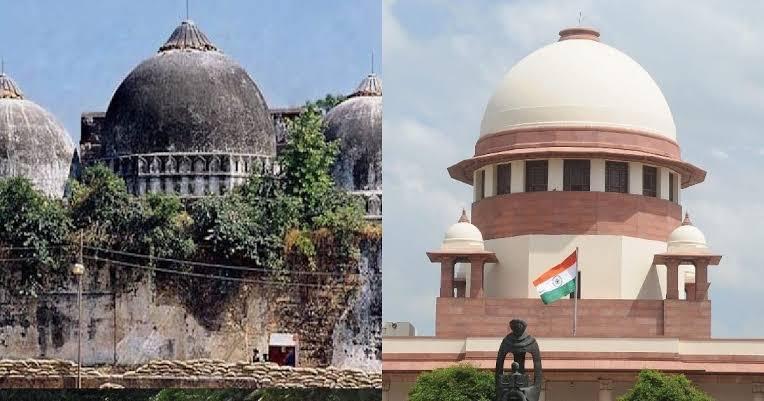
The Muslim parties are mulling over whether they should file a review petition before the Supreme Court for its 9 November verdict on the Babri dispute. Many opinion writers have been telling them that they should not accept the verdict. In doing so, they are echoing the Muslim parties to the dispute who, even before the ruling was pronounced, had said that they will accept the court’s verdict, whatever it might be. In taking this position, the Muslim parties had already struck a contrast with the Hindutva groups, who never committed to accepting a verdict that goes against them.
Be that as it may, the Muslim parties might just lean in favour of registering their protest against the deep flaws and baffling contradictions in the 9 November verdict by refusing to accept the five acres they have been offered by the court. The five-judge bench has, in any case, not specified where this plot of land will be in Ayodhya. There is a hitch even here: It is that this land has been offered to the Sunni Waqf Board, whose mutawallis or administrators are often close to governments in power, and therefore they may not want to defy the party in power by declining this award.
In this context, an ordinary Muslim can only submit a solicited or unsolicited advice to the Waqf Board. It is that by refusing this land, the Muslims may be accused of never being inclined towards an amicable solution to the fraught Babri dispute. The merit of this argument needs to be weighed.
Further, the proponents of a review petition argue that the institutional credibility of the Supreme Court is at stake in this matter. I would say, if the Supreme Court wants, it can go for review suo moto—their petition would be infructuous, if that is the case.
In fact, given the majoritarian stride India has taken, with state complicity all but apparent, a review petition filed by the Muslim parties would raise the decibel of fear and anxiety in the community. It is an open secret that many Indian Muslims were in the awkward position of praying that their side loses this case. The moment the verdict announced that the land was allotted to the Hindu parties, they heaved a sigh of relief. At least, they thought, angry bigoted Hindus will have no reason to attack them, not at this moment.
The Muslims soon learnt that those who had concerted to commit the “crime”—to cite the verdict—of demolition on 6 December 1992, have been rewarded by the apex court. They understood that their status as citizens has been redefined in the current political dispensation.
On the one hand, the verdict observes, “The court does not decide title on the basis of faith or belief but on the basis of evidence”. Yet, in an addendum of 196 pages, it says the disputed 2.77 acre of land is being given away because, “that faith and belief of Hindus since prior to construction of Mosque [1528] and subsequent thereto has always been that Janmasthan of Lord Ram is the place where Babri Mosque has been constructed”.
The verdict also says that the Babri Masjid was not built by destroying any pre-existing structure. Thus, the Supreme Court is supremely contradictory, but it does not stop there. The usual judicial convention is that the observations of individual judges bear their own signatures. This unanimous judgment, however, keeps them under a veil of anonymity. People are playing guessing games over who wrote this addendum whose author, “…while being in agreement with the above reasons and directions” sets out a different array of reasons in this addendum.
Legal expert Upendra Baxi has called this anonymity unconstitutional, saying that “Indians have a right not to be governed by anonymous judicial decisions”.
This anonymity itself raises questions, which add to the doubts arising from the melting of boundaries between the ratio, obiter and operative parts of a judgement. Now, if the Muslim parties consider seeking a review of its ruling by the Supreme Court, which part would they seek to review—the statements that have no legal import or the obiter dicta, the logic or rationale of the judgement, or its operative part—the award?
To err is human, to forgive is divine—and so the Constitution has Article 137 to rectify inadvertent mistakes. While we are on aphorisms, another saying goes, justice should be seen to be done; it should ring true within the one who avails it. This exalted notion of justice is what the Muslim parties may be seeking to rectify when they consider a review petition. In legal parlance, they can seek a review of an “error apparent on the face of the record”. Such a re-examination of an order, decree or judgment has to be sought from the same court and same bench that delivered the earlier decision. Put another way, a review is a “formal assessment of something with the intention to institute a change, if necessary”.
So, the Muslim parties need to consider if the said errors, flaws and contradictions in the verdict were unwitting.
For, the verdict itself says that it has relied upon “hearsay” accounts of colonial travelogues and gazetteers, especially Tiffenthaler’s (in 1786) and Montgomery Martin’s (in 1838). The verdict says such accounts should be read with “circumspection”, at most using them as “corroborative material to evidence which emerges from the record” (Part P, page 908). “…a finding of title cannot be based in law on the archaeological findings which have been arrived at by [the Archaeological Survey of India] ASI,” the ruling says.
It admits that between the 12th and 16th centuries, which are the dates of the underlying structure and the Babri Masjid, four centuries intervene, on which no evidence has been placed on the record. “Title to the land must be decided on settled legal principles and applying evidentiary standards which govern a civil trial,” it then says on page 907 of part P. The entire judgement spanning 1,045 pages eloquently talks about the inadmissibility of, or lack of, such evidences. Yet the Court decides against the “Muslim side” on the basis of the same evidences.
Generally, civil disputes in India are decided on the criterion of preponderance of probability, which is invoked in paragraph 797 of page 921 of the verdict. The preponderance is supposed to nix any doubts about a ruling in such disputes. But, in this case, the court has put an unwarranted amount of burden of proof on the Muslim parties, who despite providing swathes of documentary and oral evidences, could not swing the matter in their own favour.
These contradictions have crept into the verdict, leading to the unanimity of five judges, who have comprehensively argued this case with not a single dissent. Does this not mean that the errors, howsoever glaring, are not unwitting?
These flaws and contradictions in the verdict are being articulated in the public domain. Therefore, it would be better to let the Supreme Court go for a suo moto review, if it wishes. The Muslim parties should be more concerned about the vulnerability and security of Muslims in these circumstances. Lingering on this issue is bound to boost their anxieties.
Pragmatism demands that Indian Muslims should not compare their circumstances with that of the Dalits, for now. In the Kashi Mahajan case (2018), it was held that a preliminary inquiry would be conducted before filing a FIR under the Scheduled Castes Scheduled Tribes (Prevention of Atrocities) Act, 1989. After a largescale protest spearheaded by the Dalits, the Supreme Court, in the Prathvi Raj Chauhan vs. Union of India case, in 2019, “recalled its direction”. Muslim citizens cannot afford to do a Bharat Bund like the Dalits did.
The Supreme Court has explicitly noted that its Ayodhya judgment is a balancing act that seeks to end a festering issue, and that its conclusions are in the fitness of justice, peace and tranquillity. Would a review be a prudent option, given this and the overall climate of majoritarian hatred?
Right after the Ayodhya judgment, the cry to “reclaim” two mosques at Kashi and Mathura have raised their head again. True, the Places of Worship (Special Provisions) Act, 1991, is in place, preventing this. But, are Indians certain that there will be no violation of it?
After all, none of the accused in the Babri Masjid demolition cases have been brought to book even though the title suit has been fast-tracked. The huge misgiving is that the Srikrishna Report lays the culprits of that demolition bare, whereas some Muslim culprits in the subsequent Mumbai bomb blast cases have been given the death penalty. The glaring shifts in the scales of justice should bring caution to those seeking a review.
The Indian brand of secularism and long-held composite culture are still to be considered the edifice on which the 1991 Act stands. Secularism is part of the basic structure of India’s Constitution, which is unamendable. At least this bulwark would hopefully allow those who have apprehensions about the other two mosques a reason to sigh in relief.
India’s Muslims should struggle to be hopeful. Dr BR Ambedkar had said that no matter how good a Constitution may be, “it is sure to turn out bad because those who are called to work it, happen to be a bad lot. However bad a Constitution may be, if may turn out to be good if those who are called to work it happen to be a good lot.”
Let civil society and citizen’s rights activists work towards safeguarding the Constitution. Majoritarianism will meet its own nemesis sooner or later. Keeping that hope alive, even against hope, seems to be the only way out at the moment.
Zeeshan Ahmad is a student of law and Mohammad Sajjad is a professor of history at Aligarh Muslim University. The views are personal.
Get the latest reports & analysis with people's perspective on Protests, movements & deep analytical videos, discussions of the current affairs in your Telegram app. Subscribe to NewsClick's Telegram channel & get Real-Time updates on stories, as they get published on our website.









